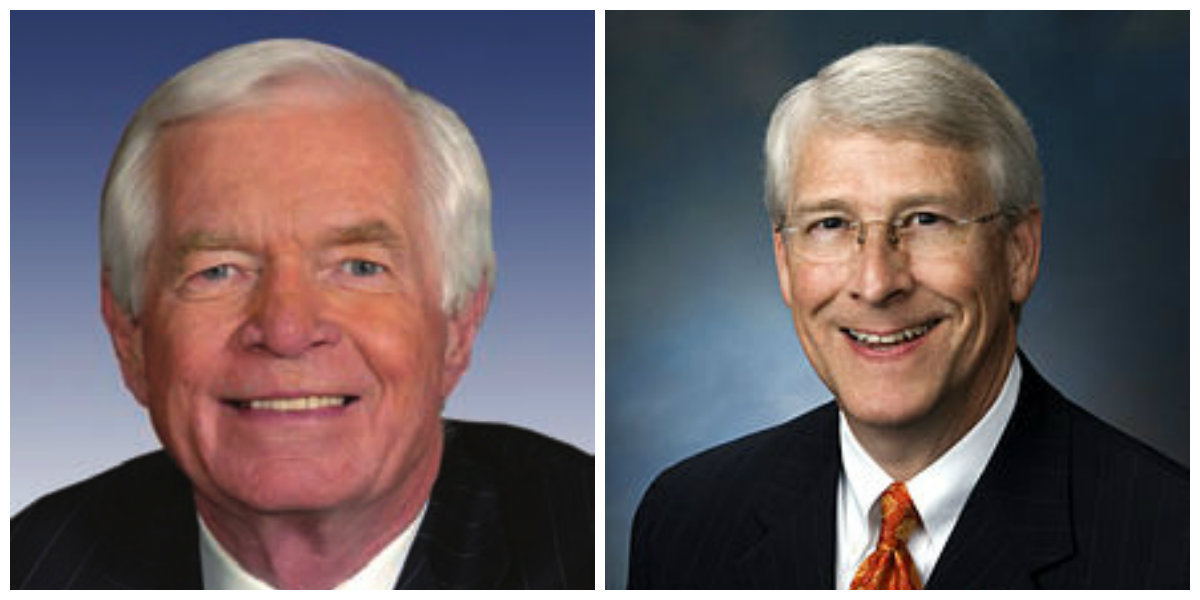UPDATE: An effort to repeal Obamacare and replace it over a two year period has failed in the U.S. Senate. The vote was 45-55, according to Fox News.
Mississippi Senators Roger Wicker (R-Miss) and Thad Cochran (R-Miss) have voted to continue the discussion on repealing and replacing The Affordable Care Act, also known as Obamacare.
Obamacare would be replaced with a version of The Better Care Reconciliation Act. On Tuesday, the Senate voted against taking one overhaul measure, and the discussion continues on Tuesday. There’s no indication on whether or not the Senate will pass any type of reform.
“I will continue to work with my colleagues as the Senate debates ideas to improve health insurance options for the American people. I will do my best to make the right decisions for the people of Mississippi and our nation as the repeal and replace debate goes on,” said Senator Thad Cochran.
“Health insurance costs are exploding, insurers are leaving the market, and Americans have fewer and fewer choices,” Wicker said. “Simply put, Obamacare is failing. I have consistently voted to repeal Obamacare, and I intend to do so again. President Trump is committed to signing into law legislation that aims to undo the harm caused by the current system. I am equally committed to getting that legislation to his desk.”
In Mississippi, families are now paying $2,928 more per year in health insurance premiums than they did in 2013 – an increase of 116 percent.
According to Joel Jasper with Morgan White Group, Mississippians who begin the Affordable Care Act coverage plan don’t stick to it.
“I’ve had one of the major insurers tell me that the average time that people were staying on the plan was four months,” said Jasper. “That tells you that they’re getting on it, they’re going to get their healthcare, then they’re dropping it and buying it again when something else comes up. That’s not insurance, and that’s not how that works.”
RELATED: Proposed changes could prevent jumping on and off new health care act
Mississippians have protested against changing the Affordable Care Act, mostly because of proposed Medicaid cuts.
Dr. Scott Crawford of the Life Mississippi organization spoke with News Mississippi regarding the impacts the healthcare reform bill in the Senate could have on those with disabilities.
“There are many who couldn’t be in community-based programs, they’d have to go to a nursing home,” said Crawford. “We’re one of the only countries without universal healthcare. Shame on us. We can do better.”
Crawford was once a psychiatrist before being diagnosed with a severe progressive form of multiple sclerosis.
RELATED: Medicaid protests spark throughout Jackson
Elected officials from both sides of the aisle have spoken to the impacts of repealing and replacing Obamacare with the proposed Medicaid cuts.
While Medicaid has not been expanded in the Magnolia State, more cuts to the program could be detrimental, according to Mississippi lawmakers.
“It would have a devastating impact,” said Rep. Steve Holland of District 16, representing Lee and Monroe counties. “The entire medical foundation of this state relies on Medicaid.”
Senator Hob Bryan, representing District 7 comprised of Lee, Itawamba, and Monroe counties, said the issue goes far and above Medicaid itself, and could greatly impact the economy of the state as a whole.
“We get more federal match from Medicaid than any other state in the country. For Medicaid dollars spent, the feds match 75 cents to our 25,” said Bryan. “And for a portion of that 25, we have taxes and fees on health care that take care of that 25.”
RELATED: Lawmakers discuss impact of potential Medicaid changes
State Insurance Commissioner Mike Chaney supports replacing the Affordable Care Act but notes the issues with Medicaid cuts.
“They may not pass it as written,” said Chaney. “They may have to come off the Medicaid cuts. If it passes as written, we could be okay for a few years, because we didn’t expand Medicaid.”
Chaney said the danger comes with what could happen later.
“But if the federal government comes back and says ‘we need you to pay 15 percent more for Medicaid,” said Chaney. “Then we’d have a problem.”




